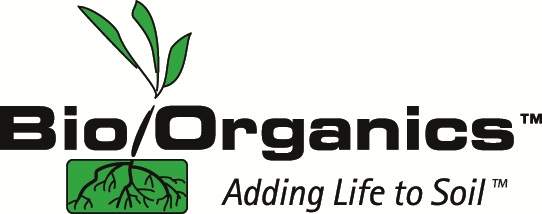In my opinion, the one area where biological methods are most lacking is in plant nursery operations.
With few exceptions, nurseries still follow old-fashioned, chemically-oriented, direct feeding
practices that produce relatively weak plants.
Certainly, there is no arguing that regular doses of synthetic NPK fertilizer and fungicides can create
rapid seedling growth and prevent some diseases, but such plants are generally not very well
equipped to survive after leaving their protected greenhouse and sterile pot environments.
Instead, if the potting media in nurseries contained small amounts of active compost with beneficial
bacteria, a wide range of valuable natural nutrients would be made available to young plants, as well
as triggering natural defensive immune systems within the seedlings.
Then, the adding of mycorrhizal fungi spores, either by blending them into the potting mix or applying
them as a drench after germination, would dramatically increase the ability of the seedlings to
uptake nutrients - by a factor of ten times or more! This would greatly cut down the need to fertilize,
both during the nursery stage and after the plants are set out. Besides cost savings, this sort of biology-
oriented approach would eliminate problem runoff of nitrates and other pollutants. (There would
still be the need to do some fertilizing, but small amounts of dry gradual-release forms blended into
the potting media would be sufficient in most situations.)
When using biological methods, growers should expect slower growth in young seedlings during the
stage when the beneficial fungi and bacteria are developing and colonizing the soil. This is a normal
and natural difference between biological and chemical methods - nature works on a slower but
much more powerful rhythm than do chemicals.
Within a couple weeks time, the seedlings with mycorrhizae on their root systems will change appearance,
then swiftly overtake and out-perform their chemically-forced cousins. The difference can
be astonishing to nursery owners, especially when it involves “hard-to-propagate” types of plants.
Many nurseries have ignored the use of biological products calling them “extra-cost additives.”
These are NOT “add-ons” to conventional nursery practices. Bio-inoculants represent a different
way of creating new plants - stronger, healthier, and far more disease-resistant plants.
The nursery stage is the logical time to introduce beneficial microbial agents to new plant roots. After
learning how to use biology for propagation, nurseries could begin sending much tougher plants
out into the world at reduced cost.
I think every modern nursery should be trying biological methods, at least on some limited scale.
My company provides free advisory services to our customers.
Don Chapman
BioOrganics, Inc.
www.bio-organics.com
Oct., 2001
